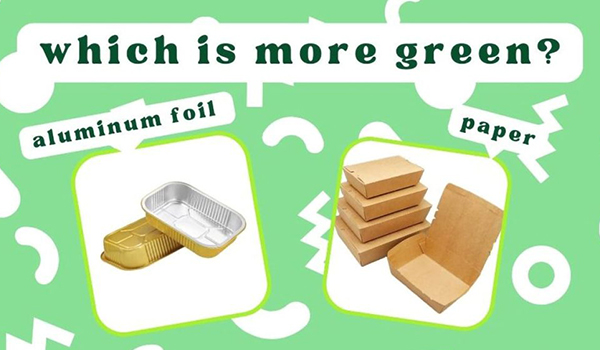
Disposable paper tableware has a long history. However, with the invention of plastic and the rapid development of industry in the mid-20th century, disposable plastic tableware quickly became popular and replaced paper tableware to some extent. Their lightweight, cheap, and easy-to-store characteristics have an irresistible attraction to merchants.
But people soon realized through various shocking photos and presses that plastic tableware can hardly be degraded naturally. The casually discarded ones have caused serious pollution to the environment and affected the health of organisms in the food chain, including humans themselves.
Therefore, people began to embrace disposable paper tableware again, and governments of various countries have also introduced various policies to restrict the use of plastic tableware and seek more environmentally friendly disposable tableware; disposable aluminum foil containers seem to have great potential.
How Consumers Make Environmentally Friendly Choices
Of course, the responsibility for choosing disposable tableware is not only on the merchants, but consumers also play a key role. Consumers can promote market changes through their own choices. First, consumers can choose to use their own reusable tableware to reduce the demand for disposable tableware. Secondly, consumers can advocate and support businesses that use environmentally friendly tableware, such as being willing to pay more for restaurants that use aluminum foil containers. In addition, consumers can also participate in and promote waste recycling, such as cleaning aluminum foil containers and handing them over to waste recycling centers.
There is no absolute answer to this question. Aluminum foil containers and paper containers have their own pros and cons. The most important thing is that we need to consider this issue from multiple perspectives, including the environmental friendliness of the production process, the efficiency of product use, and the recycling and disposal of waste. Only in this way can we make truly beneficial choices for the environment.